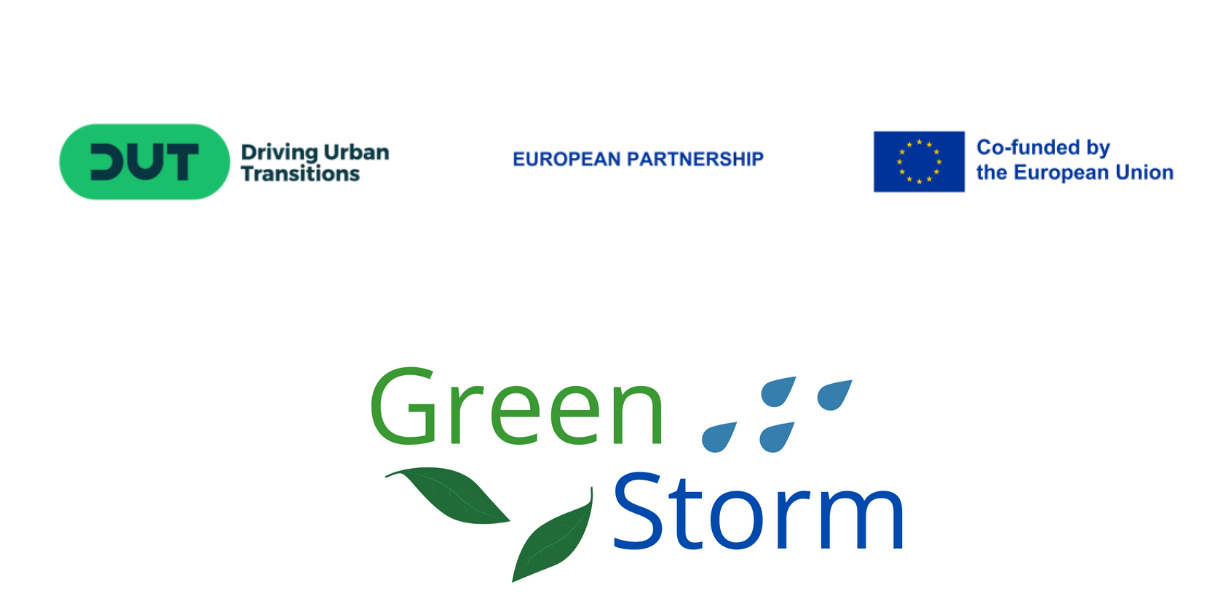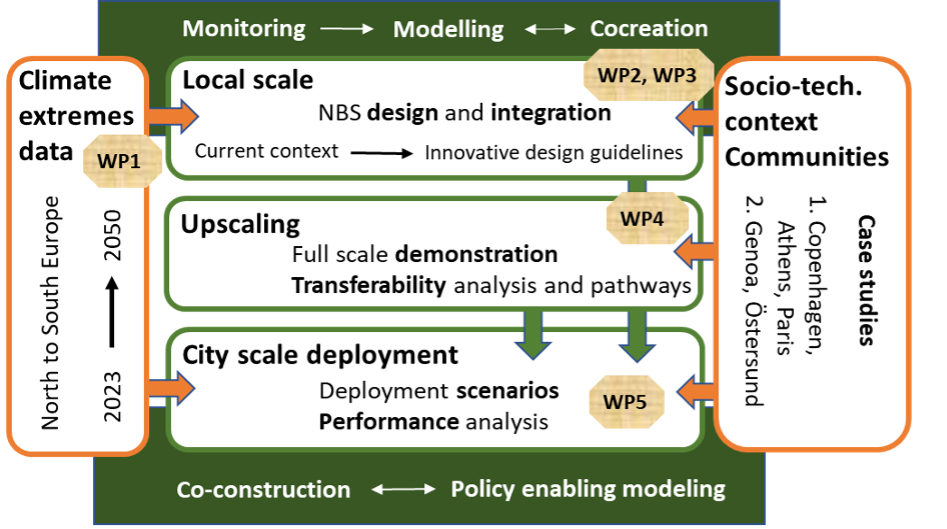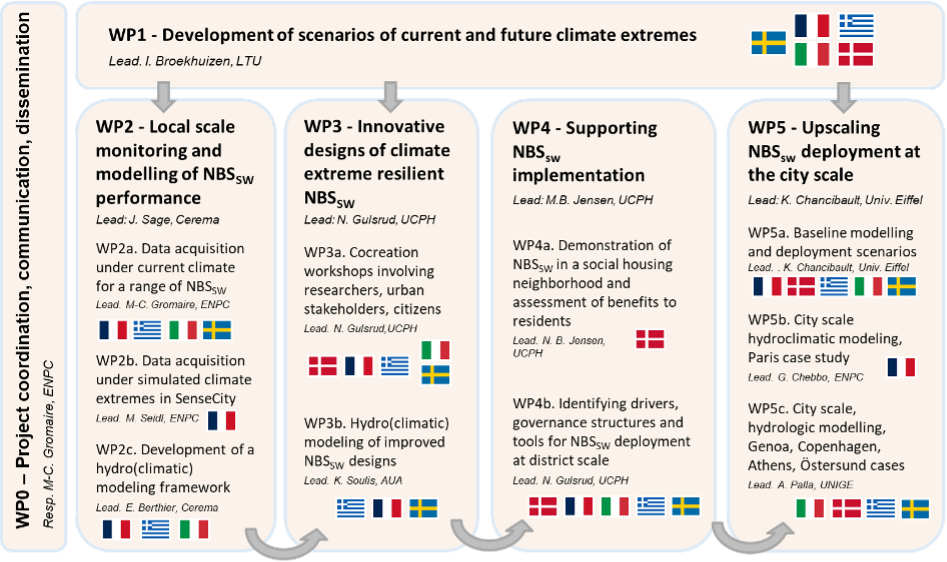Driving Urban Transitions to a sustainable future (DUT call 2022): GreenStorm project
Design and deployment of stormwater nature-based solutions (NBSSW) for resilient and livable cities
A three-year project: 2024-2026

GREENSTORM from ARCEAU IdF on Vimeo.
PRESENTATION
GreenStorm targets nature-based solutions designed to manage stormwater (NBSsw) as a means of urban transition, with a specific focus on climate adaptation, resilience of urban vegetation, but also enhanced social benefits. The hydrologic and thermal performance of NBSsw during present and future climate extremes (high intensity rainfall, drought, heat waves, frost/thaw) will be assessed for a range of NBSsw structures and a wide span of European climates, by coupled monitoring / modelling. Improved NBSsw structures, and pathways for their acceptable implementation in urban areas will be developed based on co-creation workshops with all relevant stakeholders (professionals and citizens).
A real case study in Copenhagen will serve to demonstrate NBSsw implementation in a community engaged approach and, based on a cross analysis with data and feedback from Paris, Athens, Genoa and Östersund, will allow to identify drivers for NBSsw upscaling. Based on these results, potential for widespread implementation of NBSsw at large urban catchment scale will be analysed in the 5 partner countries (France, Denmark, Sweden, Greece, Italy) and the hydrologic/hydraulic and thermal benefits will be modelled.

GOALS
- The GreenStorm project targets a greater resilience of urban water and sanitation services, which is a major challenge of urban adaptation, as well as a greater liveability of cities via resilient greening.
- The project will bring together contributors with expertise in a variety of disciplines to address in a holistic manner and across different scales the development and implementation of efficient, resilient and acceptable NBSSW.
- NBSSW deployment scenarios will be elaborated by cutting across the boundaries of various disciplines and involving different stakeholders, and ultimately be used to assess various NBSSW benefits by the means of numerical tools, under current and future climate conditions.

PROJECT CONSORTIUM
Five European countries are involved in this project: France, Greece, Italy, Denmark, and Sweden.
- 7 universities or research labs: Ecole des Ponts ParisTech (ENPC) - France, Cerema - France, University Gustave Eiffel - France, University of Genoa (UNIGE) - Italy, University of Copenhagen (UCPH) - Denmark, Agricultural University of Athens (AUA) - Greece, Luleå University of Technology (LTU) - Sweden
- 6 urban public authorities: City of Copenhagen, City of Athens, City of Genoa, City of Paris, CD93, City of Ostersund
- 1 SME Partner: Koordinat (Denmark)
ARCEAU IdF association ensures the promotion of scientific research results of the project.
CONTACT US:
Marie-Christine Gromaire marie-christine.gromaire@enpc.fr
Jérémie Sage jeremie.sage@cerema.fr
